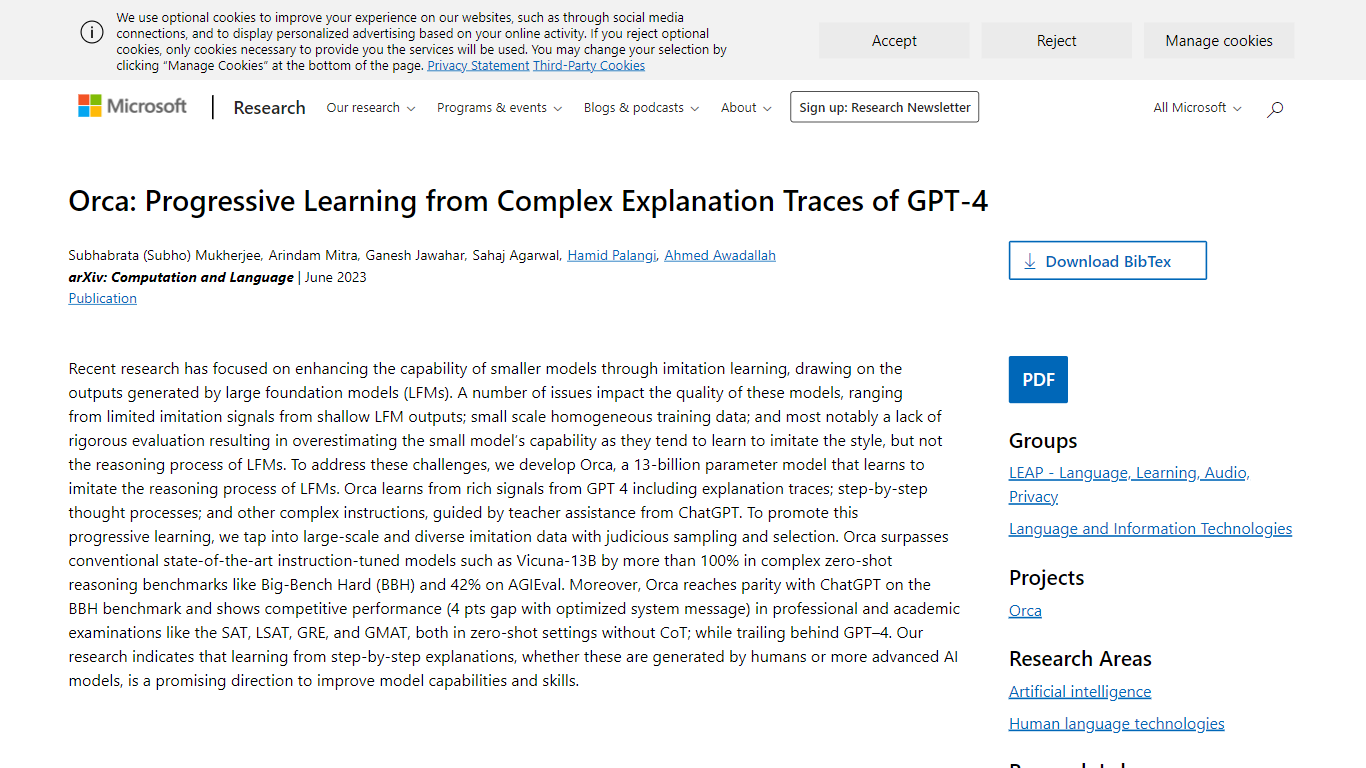
Last updated 10-23-2025
Category:
Reviews:
Join thousands of AI enthusiasts in the World of AI!
Orca
Recent advancements in artificial intelligence have paved the way for pioneering research in machine learning, specifically targeting the refinement of smaller AI models. Inspired by this notion, Microsoft Research introduces "Orca," a cutting-edge methodology designed to upgrade the learning processes of these compact AI constructs by utilizing the robust explanation traces produced by larger foundation models like GPT-4.
This innovative approach tackles several challenges encountered in the realm of AI imitation learning, such as the limited learning signals derived from the superficial outputs of larger models, the restrictive nature of small and homogeneous training datasets, and critically, the deficiency of stringent evaluation parameters that directly influence the overall quality and reliability of these models. Orca is a testament to Microsoft's commitment to evolving AI learning and potentiating smaller models' ability to reason, explain, and ultimately understand much like their large-scale counterparts.
Microsoft Research Initiative: Orca aims to enhance the capability of smaller AI models.
Leveraging GPT-4: Utilizes complex explanation traces from larger foundation models such as GPT-4.
Addressing Imitation Learning Limitations: Focuses on overcoming challenges encountered in standard imitation learning processes.
Boosting AI Quality: Improves rigorous evaluation metrics for better quality AI models.
Bridging the Learning Gap: Enables smaller models to mimic the reasoning and explanation processes of larger models.
What is Orca in the context of Microsoft Research?
Orca is a research initiative by Microsoft that aims to empower smaller AI models by leveraging explanation traces of larger foundation models like GPT-4. It focuses on using progressive learning techniques to improve AI capabilities.
What are the benefits of Orca?
The benefits include better learning capabilities of smaller AI models, tackling limitations of imitation learning, and ensuring higher quality through stringent evaluations.
What issues does Orca address in AI imitation learning?
Issues being addressed include limited imitation signals from LFM outputs, small homogeneous training data, and a lack of rigorous evaluation.
What is imitation learning in AI?
Imitation learning is a process where models learn to mimic the behavior of a specified agent or process, in this case, the outputs generated by larger foundational models such as GPT-4.
What are LFMs in artificial intelligence?
LFMs, or larger foundation models, are substantial AI models with broad capabilities that can be harnessed to improve other AI systems. GPT-4 is an example of an LFM.
